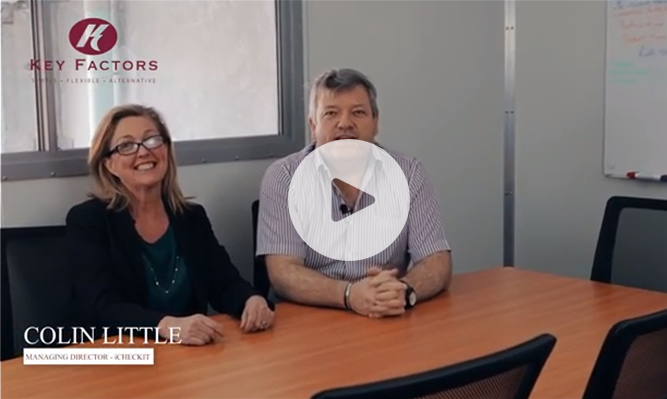ATO warns small businesses to stop using tax to ‘prop up’ cash flow
By Ram - Nov 28 2023
Small business operators are propping up their cash flow using unpaid tax and superannuation liabilities. This practice attracts scrutiny from the Tax office, says second commissioner Jeremy Hirschhorn.
On Tuesday’s Financial Review CFO Live Summit, the second commissioner, Jeremy Hirschhorn will report on how the agency has seen an increased reliance on unpaid tax and flagged stronger compliance action in 2024. Mr Hirschhorn is among the contenders to replace outgoing commissioner Chris Jordan in next year’s top job.
At the Summit, Mr Hirschhorn will say that small businesses currently owe more than two-thirds of the Tax Office’s $50 billion in collectable debt.
The tax gap is the estimated difference between what the ATO collects and what it would have collected if every taxpayer fully complied. The tax gap for small businesses is 13%, far higher than large companies’ 4.2% tax gap.
“During the pandemic we took a different audit posture with individuals and small businesses, chased fewer lodgements and recovered less debt,” he will tell the country’s top finance chiefs in Melbourne.
“While we resumed stronger action in late 2021, we have observed a behavioural shift as to the priority of paying tax and super. We are concerned with an increased reliance on unpaid tax and unpaid super to prop up the cash flow of some businesses.”
The ATO is willing to work with business operators to recover tax liabilities. However, officials report debt information to credit reporting bureaus, which could be more forthcoming with their engagement.
More than 10,500 businesses have significantly overdue and undisputed tax debts exceeding $100,000. The ATO has handed over such businesses’ debt information since July.
A look into ATO’s recent annual reports showed the debt book had increased 89% in four years, reaching $50.2 billion as of June 30. The net tax collections in the year 2022-23 were $576.2 billion, which is an increase of nearly 12% or $60 billion over the previous year.
An added $7.7 billion came from almost 1.3 million alleged “client engagement activities”. These activities include tax audits and actions to halt dubious deductions and false claims.
Small businesses have consistently managed to beat out large companies and individuals to maintain the largest tax gap. Mr Hirschhorn puts the blame on dishonest operators in the cash economy, and a minority of small firms who make honest mistakes.
“Our ambition here is to build a digital-first ecosystem to help small businesses comply with their tax and super obligations, by moving tax reporting, or payment, closer to the tax event through greater integration of ATO systems with the natural systems of their businesses,” he will say.
In July, Mr Jordan stated that he would not go for another term as the Commissioner of Taxation. As a result, a merit-based recruitment process to fill the position is rumoured to be close to completion. The recruitment process seems to have outside prospective candidates and one overseas-based person.
Profit shifters beware
Mr Hirschhorn will say large corporate and public organisations are under the spotlight over their tax affairs due to uncertain economic conditions. However, if engaged in greater transparency, many businesses in Australia portray a good image about their compliance with tax rules.
The 2022-23 financial year saw an increase in net tax collection of more than $37 billion higher than budget forecasts. A record $83 .8 billion in income tax for 2021-22 financial year came from Australia’s 2,700 largest corporations. This high figure was boosted by high commodity prices that were matched by high levels of voluntary tax compliance.
“Whilst all industries contributed more tax, the substantial increase can be attributed to the mining sector which contributed just over half of the overall results in 2021-22, compared to less than a third in 2017-18.”
He will warn large Australian businesses and multinationals engaging in profit shifting and tax avoidance that they will be caught out.
“Our ability to invest our resources to scrutinise the affairs of these businesses only intensifies as more and more taxpayers demonstrate high levels of compliance. For businesses operating in this space, it’s not a matter of if you will be subject to investigation, rather when.”
The assistant minister for competition, charities, and treasury, Mr Andrew Leigh, will tell the summit of the government’s determination to fix the deteriorating competition in the recent decades. This undertaking shall be done through the ministry’s stand-alone review and a new taskforce in the Treasury.
Mr Leigh will say the diminishing intensity in competition has probably contributed to declining productivity in Australia in recent decades.
“We need innovative businesses more than ever to help drive the transition to net zero, to make the most of emerging data and digital innovations, and to seize the opportunities from the growth of the care economy,” Dr Leigh will say. “A dynamic and competitive economy can help harness those opportunities.
“It is important for existing industries, too, so they can better manage change, build resilience and work more effectively. Making our economy more competitive is critical for tackling cost-of-living pressures now and laying the foundations for future growth.”

